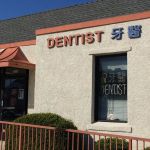How to Handle a Dental Emergency on the Weekend
- 1. Understanding Dental Emergencies
- 2. Common Weekend Dental Emergencies and How to Identify Them
- 3. Immediate Actions You Can Take in a Dental Emergency
- 4. Finding Dental Care on the Weekend
- 5. Tips for Preventing Future Dental Emergencies
- 6. Learn More and Get Help with Dentistry Toothtruth
1. Understanding Dental Emergencies
Dental emergencies can strike at any time, but they often feel especially stressful when they happen over the weekend when most dental offices are closed. A dental emergency is typically defined as any situation that requires immediate treatment to stop bleeding, alleviate severe pain, or save a tooth. Unlike a regular check-up or cleaning, a dental emergency often involves a sudden issue that can’t wait until normal business hours. Whether it's a broken tooth, severe pain, or bleeding gums, it's crucial to act quickly to prevent further damage.
Common dental emergencies include toothaches, cracked or broken teeth, lost fillings, and knocked-out teeth. These incidents require urgent care, and knowing how to handle them properly can save you significant time, money, and discomfort. This article will guide you through the essential steps to take when you face a dental emergency over the weekend, including immediate actions you can take and how to find dental care when most offices are closed.
2. Common Weekend Dental Emergencies and How to Identify Them
Weekend dental emergencies are often unavoidable, especially if you are enjoying a meal or participating in sports activities. Here are a few common scenarios:
- Severe Toothache: If you're suddenly struck by a sharp, persistent toothache, it could indicate a variety of dental issues like cavities, gum infections, or even tooth abscesses. A toothache that doesn't subside after a few hours could signal the need for emergency treatment.
- Broken or Chipped Tooth: Accidents can happen, and teeth can chip or break during activities like eating or playing sports. While it may not always be painful, it is essential to treat the injury to prevent infection or further damage.
- Lost Filling or Crown: If you lose a filling or crown, it can expose the sensitive part of your tooth, leading to discomfort or even more severe dental issues if left untreated.
- Knocked-Out Tooth: This is perhaps one of the most alarming dental emergencies. If you’ve knocked out a tooth, act fast. The sooner you can get to a dentist, the higher the chance of saving the tooth.
These common emergencies can happen without warning, and it’s essential to act swiftly. In the next section, we’ll discuss some steps you can take to alleviate pain or minimize damage until you can receive professional care.
3. Immediate Actions You Can Take in a Dental Emergency
When you find yourself dealing with a dental emergency, it’s important to stay calm and take the appropriate actions. Here's what to do depending on the situation:
- Severe Toothache: Rinse your mouth with warm water and floss gently to remove any food particles stuck between your teeth. Over-the-counter painkillers such as ibuprofen or acetaminophen can help relieve the pain, but avoid placing aspirin directly on your gums as it can cause irritation. If the pain persists, seek urgent dental care.
- Broken or Chipped Tooth: Rinse your mouth with warm water and apply a cold compress to reduce swelling. If you can find the broken piece, bring it with you to the dentist. It may be possible to restore the tooth.
- Lost Filling or Crown: For a lost filling, you can temporarily use dental cement (available at most pharmacies) to cover the exposed cavity. For a lost crown, you may also use dental cement or even sugar-free gum as a temporary measure until you see a dentist.
- Knocked-Out Tooth: Time is critical here. Gently rinse the tooth without scrubbing it and try to place it back in its socket. If that’s not possible, place it in a container with milk or saliva. Get to a dentist immediately for the best chance of re-implantation.
Taking these immediate actions can help alleviate pain, prevent further damage, and prepare you for professional care. Remember, these are temporary solutions, and it’s essential to seek a dentist's help as soon as possible.
4. Finding Dental Care on the Weekend
When a dental emergency strikes on the weekend, finding immediate care can be tricky since many dental offices are closed. However, there are options available to get the treatment you need:
- Emergency Dental Clinics: Many cities have emergency dental clinics that operate outside regular office hours. These clinics specialize in treating urgent dental issues such as toothaches, broken teeth, and more. Look for an emergency dentist near you and call ahead to ensure they can take you in.
- Urgent Care Centers: Some urgent care centers may be able to provide basic dental care for emergencies. While they may not be able to perform complex dental procedures, they can help alleviate pain or stabilize the situation until you can visit a dentist.
- Dental Offices with Extended Hours: Some dental offices offer weekend hours, especially for emergency cases. It’s a good idea to call your regular dentist and inquire about their weekend availability or any emergency services they provide.
Finding dental care on the weekend may require a bit more effort, but with the right resources, you can get the care you need and prevent further complications.
5. Tips for Preventing Future Dental Emergencies
While dental emergencies cannot always be predicted, there are steps you can take to minimize your risk and protect your teeth:
- Wear a Mouthguard: If you play contact sports or grind your teeth at night, wearing a mouthguard can protect your teeth from injury.
- Maintain Regular Dental Check-ups: Regular visits to the dentist can help detect and address potential dental issues before they become emergencies.
- Practice Good Oral Hygiene: Brushing and flossing daily can help prevent tooth decay, gum disease, and other oral health issues that can lead to emergencies.
- Be Careful with Hard Foods: Avoid biting hard objects like ice, hard candies, or pens, as they can cause cracks or breaks in your teeth.
By taking these precautions, you can significantly reduce your chances of experiencing a dental emergency and keep your smile healthy for years to come.
6. Learn More and Get Help with Dentistry Toothtruth
If you're facing a dental emergency and need more information or assistance, visit Dentistry Toothtruth. Our website offers expert advice, treatment tips, and resources to help you manage dental issues and connect with reliable professionals.
Click here to explore more dental care resources and get the help you need in times of crisis.







 Dee for Dentist4.0 (173 review)
Dee for Dentist4.0 (173 review) Star Smiles Orthodontics4.0 (24 review)
Star Smiles Orthodontics4.0 (24 review) Dr. Aaron Ivanhoe5.0 (6 review)
Dr. Aaron Ivanhoe5.0 (6 review) Dr. Sum Li, DDS3.0 (8 review)
Dr. Sum Li, DDS3.0 (8 review) Galkin Orthodontics4.0 (481 review)
Galkin Orthodontics4.0 (481 review) Catonfield Dental4.0 (561 review)
Catonfield Dental4.0 (561 review) The Importance of Oral Health Education During Pregnancy for a Healthy Pregnancy
The Importance of Oral Health Education During Pregnancy for a Healthy Pregnancy Best Tips for Brushing Your Teeth Properly for Healthy Gums: Essential Techniques for Oral Health
Best Tips for Brushing Your Teeth Properly for Healthy Gums: Essential Techniques for Oral Health Why Skipping Dental Checkups Can Lead to Bigger Oral Health Problems
Why Skipping Dental Checkups Can Lead to Bigger Oral Health Problems Advantages of Porcelain Dental Restorations
Advantages of Porcelain Dental Restorations How Can Diabetes Cause Tooth and Gum Problems? Preventing and Managing Oral Health Issues
How Can Diabetes Cause Tooth and Gum Problems? Preventing and Managing Oral Health Issues Healthy Habits for Promoting Good Oral Health and Hygiene: Tips for a Healthy Smile
Healthy Habits for Promoting Good Oral Health and Hygiene: Tips for a Healthy Smile